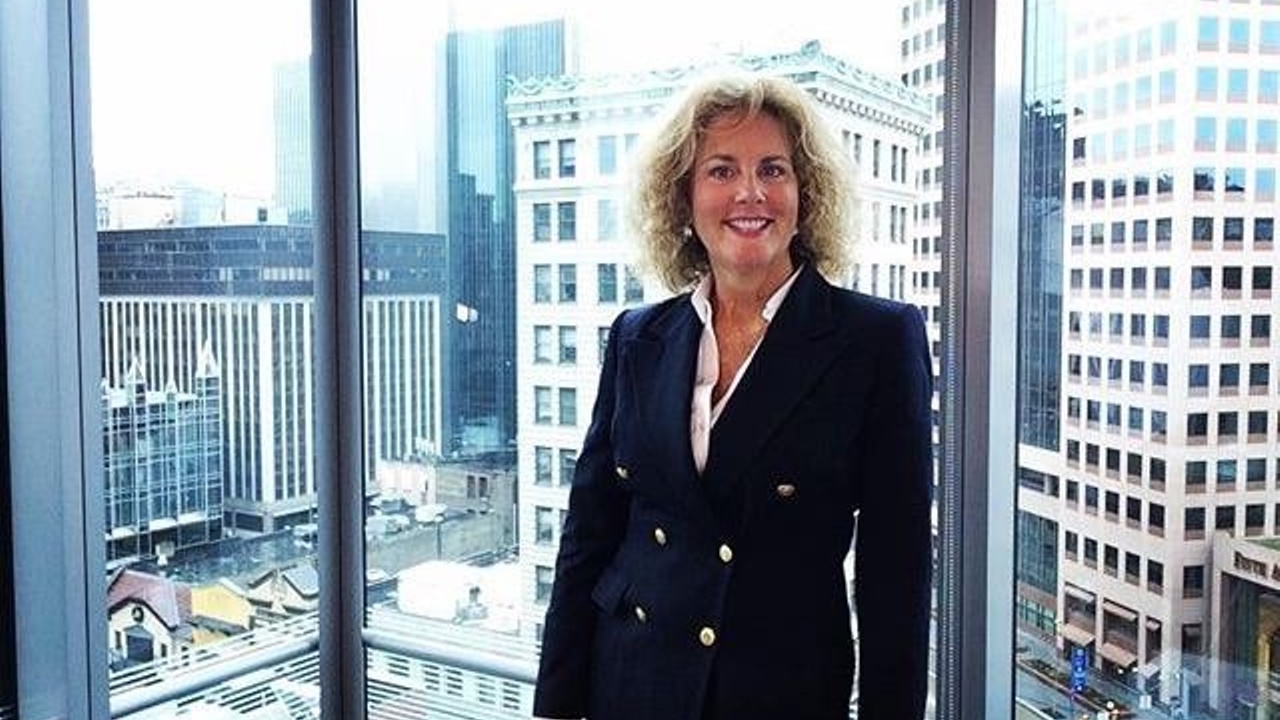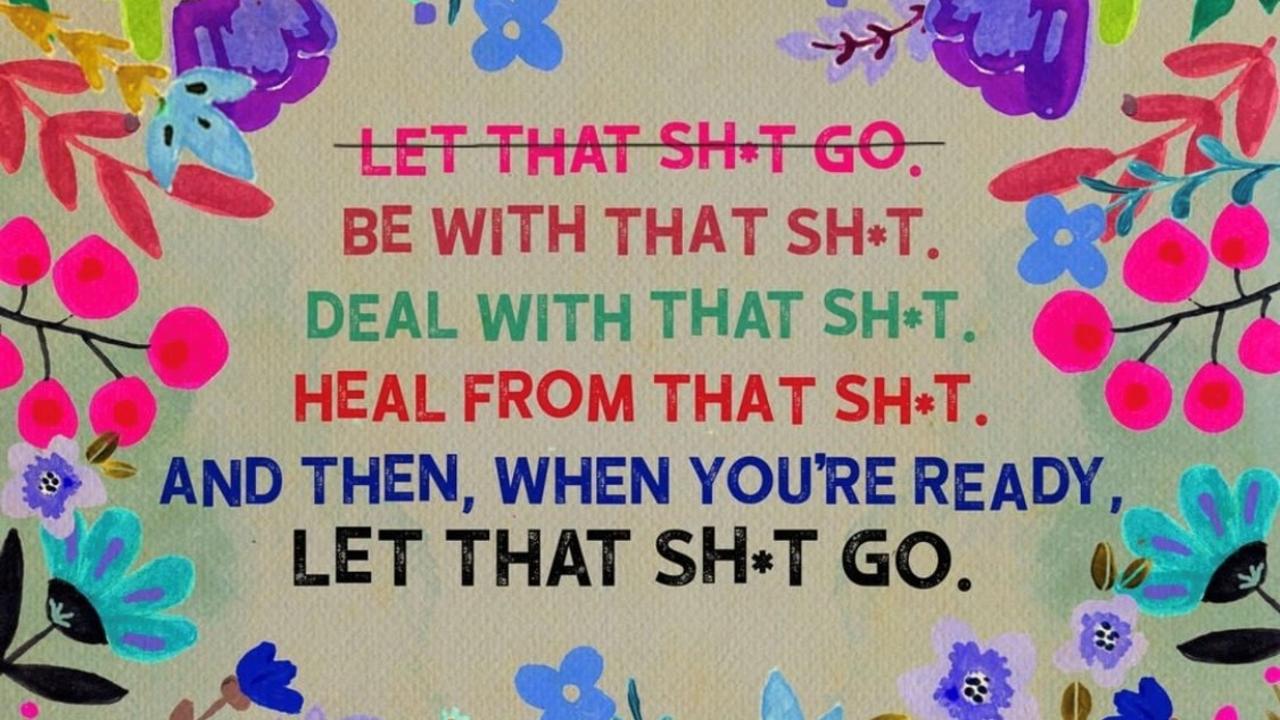This Shifts You Away from the Hurt

The shift to focusing on the lesson, not the hurt, is crucial for executive presence. It comes by way of building your self-awareness such that you notice your thoughts before you become them. How do we notice thoughts from a third party perspective instead of getting swept up in the emotions that follow? By training the mind to observe itself when not in a crisis.
Mindful daily practices train the mind to stay in the moment and not react with regret.
So build the discipline of mindful practices into your daily routine: read an inspirational passage, do a craft, meditate, take a mindful walk where you notice everything around you and not think about anything else, prayer.
Then watch what how saying or thinking things you used to later regret dissipates. Notice how the people you used to hate become subjects of study. Observe how your words are more productive with people you care about. Others will notice how much more you smile.
For more executive presence tips here's a link to...
People Fear Three Things

People fear three main things in life: pain, death and abandonment. The worst behavior I see is usually around abandonment. Knowledge is power. This intel means that if we can show people how we value them and that they belong they will feel lighter and more worthy. And they’ll behave like people who feel valued.
Think how this applies to talking with employees, family members, customers, friends and just about everyone. Compassion is king in effectiveness - authentic compassion not put-on solicitousness.
If you want more executive presence tips here's a link to the FREE eBook - 31 Executive Presence Practices for Leaders in the High Stakes Corporate World
If you are struggling with uncertainty and feel exhausted and ineffective watch my FREE Training on Three Ways to Move to the Next Level In Your Career Right Now to 1) identify the right role for you, 2) position your transferable skills and 3) create a career portfolio that sells you before you even get an interview. If you d...
Three Steps When You're Afraid

This week I had to give a presentation at work not unlike others I’ve given throughout my career, yet I was nervous. Every time I thought about it my heart started to race and I got tense in my neck and shoulders. Public speaking is one of the leading causes for workplace fear. But I speak often so my nervousness didn’t make sense. As an executive coach I know not to turn away from fear but to bring it closer like you would a hurting child. That self-nurturing was hard in this instance. But I kept getting curious about what I was really afraid of.
When I could stand open and vulnerable without judging myself, I realized I had a lot of personal distractions this week that made me feel anxious and irritable. Just the day before I had argued with an online bank customer service representative who refused to cancel a credit card they had sent to my home for my deceased father. I kept trying to convince him that this was the bank’s problem and should not be my problem. Typically, I would ...
9 Questions to Ask Yourself When You Can’t Move On

After a difficult transition such as a job loss, broken relationship, forced relocation, lost promotion, loss of a loved one where you’ve been left feeling less than yourself, depleted and ineffective well-meaning people who care about you often tell you to just ‘move on.’ As if you don’t already want to move on you take this advice in stride and wish you could do exactly what they suggest. When you can’t, you feel even more flawed. At worst, you act out your frustration, stripping your executive presence.
Most people know when they need to move on. Nobody wants to wallow in prolonged anger, sadness, fear, frustration or despair such that these feelings get in the way of joy and rob you of living in the moment. But HOW do you do that? Instinctively you want to turn away from suffering. Unfortunately, that only makes it worse. We must get curious about it. We need to familiarize ourselves with its motivation and dissect it so that we can understand it. Likely, it is a self-defense mec...
A Story About My Daughter

Yesterday I got a call from my second oldest daughter who had just had an intimidating experience. As I was helping her stay in the moment and not relive the fear or project a repeat occurrence I remembered the wisdom in the book The Four Agreements by Don Miguel Ruiz.
The book offers a code of conduct based on ancient Toltec wisdom that advocates freedom from self-limiting beliefs that may cause suffering and limitation in a person's life.
The Four Agreements are:
Always do your best.
Be impeccable with your word.
Don’t take anything personally.
Don’t make assumptions.
The first two are character based. Good people have less trouble with them. The last two are self-esteem based. Everyone has trouble with them.
Fear can be debilitating. It’s worse when we make assumptions about it. At work it usually shows up around what people say, do, what you assume is behind their behavior and what you assume they mean. You think it’s about you personally but usually it’s far deeper than that.
Who would you...
You Get It First - Just Released my FREE Report on Leading Through the Uncertainty of COVID-19

I'm so excited to have finished this report for my clients and my newsletter list. So many of you have told me the struggles you are dealing with in this pandemic. I've been working for weeks on tactics and strategies you can apply right now to lower anxiety and build peace, relationships and effectiveness for yourself, your team and your family.
FREE Report: Leading Through the Uncertainty of COVID-19
> Avoid the most common mistakes leaders make in a crisis.
> Trade the treadmill to nowhere for a revered strategy.
> Build influence dynamics that make your team want to succeed regardless of where their office is.
> Execute a plan that anticipates opportunities in spite of adversity.
Wishing you peace and effectiveness without worry today. Enjoy my free report on Leading Through the Uncertainty of COVID-19.
Your coach,
Mary Lee
For more FREE Career Resources go to >>> www.MaryLeeGannon.com
P.S. Feel free to forward this email to someone who could benefit from it. We are...
A Fun Remote-Work COVID-19 Plan for You Today - Fill in the Blanks

You're at home working remotely and worried about getting Coronavirus, your income may decline, your investment portfolio is tanking and that retirement may be a mirage. Let's focus on what needs to go right not what is going wrong.
1. We need to get comfortable with uncertainty.
Difficult, yes. But think back to the last time you were uncertain - got laid off, moved to a new town, started school or a new job. How did you get through it? You'll get through this the same way.
We want to shrink back to the ways things were. We were comfortable there. Much of the predictability of our lives is gone. We are all grieving that loss.
The sooner we accept that change is inevitable, uncomfortable and out of our control, the more resiliency we have to move forward.
2. Focus on the professional or personal development you've complained you've never have time for.
You're bored. You're as productive as you can be considering much of your work flow is controlled by a stagnant economy. So get ...
Don't Do This in Your Leadership During COVID19

These times are a test of resilience. Adjusting to working remotely is challenging for leaders and teams. Adjusting to working on site during a pandemic is the same. It’s a lesson for all of us on how to adapt to and manage what is inevitable - change. Resistance comes when people are afraid. At its most severe it’s like trying to stand still in an earthquake. “Why is this happening to me?” People feel victimized and want to escape.
Leaders need to be sensitive to their own fears and those of their constituents. Everyone needs to accept that uncertainty is part of life. The sooner we accept that the more resilient we become.
As leaders we need to be change neutral - not change agents. Don't coddle, over-sympathize, or try to protect your team or you send the message that change is painful and unmanageable. Instead of asking, “How can I make this change easier for you?” as if you are personally choosing to push something down on them that you caused, you should first ask what they’r...
COVID-19 and Your Staff Meetings

I work in a hospital setting where everyone is on site and the COVID-19 crisis has people worried. This week at my staff meeting in addition to insuring good social distance I opened it with, “This is a difficult time. Let's just stop for a minute and share how we’re feeling about what’s going on with us right now.” That moment of reflection allowed everyone to step back, take a breath and exhale all of the emotional churn that had built up.
In this safe space I witnessed a human sigh of authenticity. There were tears. There was fear. There was frustration. And after all of the emotions were out, shared, and discussed there was compassion. People offered to help each other, solutions to personal concerns and shared meaning. We saw each other instead of just ourselves. Compassion was king.
What was even more amazing is that then we were able to get some innovative work done with total focus on a crisis management plan and how we’d work together on our projects remotely if that were ...
Four Career Guideposts for Women

When I made my journey from welfare to CEO four succinct guideposts became crucial to my transformation. Malcom Gladwell said that to master anything you must do it 10,000 hours. The only problem with that is that if you are doing something that doesn’t work – you’ve just become proficient at being stuck.
Guidepost #1: Seek Your Childhood Innocence.
If we go through our lives expecting one challenge after another, that’s what shows up – life becomes a problem to solve instead of being fun like when you were a child and could play outside all night long, catching fireflies and naming stars. We start to adopt messages from experience as truth when they are nothing but interpretations. Soon life is merely solving one challenging interpretation after another. I know this well because I mastered it with what seemed like 10,000 hours.
I was a stay-at-home mother with four children under seven-years-old living what looked on the outside to be the country club life when on the inside I w...
